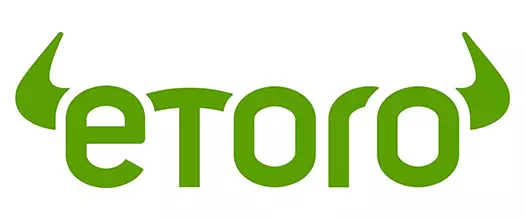- Jump to:
- Main features of the best CySEC Forex brokers
- CySEC
- CySEC’s Responsibilities
- Guidelines to Comply With
- Customer Protection
- CySEC Forex Brokers
- XM.com
- eToro
- Markets.com
- easyMarkets
The Cyprus Securities and Exchange Commission, or CySEC, stands out as a prominent regulatory body in the forex sphere. This organisation, established in 2001, supervises Cyprus’s financial landscape, including the local forex market. Moreover, as Cyprus is a member of the EU, CySEC-licensed forex brokers are permitted to operate across most of Europe. In this publication, we aim to help EU-based traders learn more about CySEC and the top FX brokers that have earned its seal of approval.
 Plus500 USThis content applies only to Plus500 US and clients from the United States. Trading futures involves the risk of loss.
Plus500 USThis content applies only to Plus500 US and clients from the United States. Trading futures involves the risk of loss. eToro61% of retail investor accounts lose money
eToro61% of retail investor accounts lose money FP Markets73.85% of retail investor accounts lose money
FP Markets73.85% of retail investor accounts lose money Pepperstone75.5% of retail investor accounts lose money
Pepperstone75.5% of retail investor accounts lose money AxiThe vast majority of retail client accounts lose money
AxiThe vast majority of retail client accounts lose money XM Group72.82% of retail investor accounts lose money
XM Group72.82% of retail investor accounts lose money
Below, you can find a comparison table of forex brokers that are regulated by the Cyprus Securities and Exchange Commission (CySEC). We rank them based on several factors, including regulation, spreads and commissions, Trustpilot rating, trading instruments, trading platforms, and deposit and withdrawal methods.
Our team has thoroughly evaluated all brokers listed below using TradingPedia’s exclusive methodology.
Main features of the best CySEC forex brokers
- Brand
- Trading platforms
- Minimum deposit
- Regulations
- Trading instruments
- Spreads
- Leverage for Forex CFDs
- Leverage for Crypto CFDs
- Leverage for Indices CFDs
- Deposit methods
- Withdrawal Methods
- Commission per Lot
- Contact details
In order to enjoy a fair and ethical trading experience, European traders are advised always to go with regulated brokers. That way, one can be certain they are using a platform that abides by strict regulatory rules, ensuring safe and fair trading conditions for its clients. One of these regulators is the Cyprus Securities and Exchange Commission, or CySEC.
Cyprus Securities and Exchange Commission
The Cyprus Securities and Exchange Commission, usually referred to as CySEC, is one of the major financial regulators in Europe. It was established in 2001 under section 5 of the Cyprus Securities and Exchange Commission (Establishment and Responsibilities) Law of 2001. It is an independent public supervisory authority that is obliged to submit an annual report of activities to the Minister of Finance. All members of the CySEC Board are appointed by the Council of Ministers following a proposal of the Minister of Finance.
As the main financial regulatory agency in Cyprus, CySEC supervises the investment services market, the securities market, and the collective investment and asset management sector in the Republic of Cyprus. It regulates multiple entities and markets, including the Cyprus Stock Exchange and all participants in it, investment services companies, collective investment funds, investment consultants, and mutual fund management companies. Of course, the agency supervises the operation of all brokerage firms and forex brokers in the country, too.
The country was considered a tax haven for a long time, which led to many European brokers relocating there to take advantage of the tax conditions and the more liberal rules. However, in 2004, the financial regulatory framework on the island changed significantly.
That year saw Cyprus join the European Union and start harmonising a large portion of its legislation with EU laws. This included financial legislation and CySEC regulations, which had to be amended to correspond to EU rules. Since then, all brokers seeking a CySEC licence have also been required to comply with the stringent Markets in Financial Instruments Directive (MiFID II).
Still, Cyprus is a preferred destination for many businesses and forex brokers since the jurisdiction offers an easier registration and licence application process. The tax rates are also much more attractive here, compared with almost anywhere else in Europe.
CySEC’s responsibilities
CySEC supervises the operation of the Cyprus Stock Exchange and of all other organised markets in the country. This means that it regulates all companies listed in it, brokerage firms, and other intermediaries participating in the transactions carried out in the exchange. The agency also reviews applications and grants operating licences to eligible entities, including forex brokers.
It has full authority to monitor the conduct of licensees, launch investigations against suspected offenders, require and obtain information necessary for CySEC’s duties, and suspend and revoke licences. Furthermore, CySEC can impose administrative and disciplinary sanctions where malpractices have been identified.
Overall, the authority is responsible for the monitoring and regulation of all market participants and investment service providers in Cyprus. Its main objective is to ensure that the securities market is fair and that investors and traders are protected.
Guidelines CySEC brokers need to comply with
All forex brokers licensed by CySEC are required to comply with a list of rules and guidelines set by the relevant authorities. They need to operate with transparency and in a fair manner by adhering to the regulatory framework in Cyprus and in the EU. Of course, the guidelines are also subject to updates to ensure they can adequately protect investors.
Obtaining a CIF licence is a relatively new requirement, and its purpose is to ensure that brokers have enough capital to hold their clients’ positions without risking losses in a volatile market. The minimum depends on the type of licence the forex broker is applying for:
- Companies that apply for a basic broker licence must have an initial capital of at least €50,000. This permit covers the provision of financial advice and the management of client portfolios.
- Trading brands that handle their clients’ funds, meanwhile, are mandated to hold an initial share capital of at least €125,000. This licence type applies to straight-through processing (STP) brokers.
- The requirement for initial share capital goes all the way to €730,000 for a full licence. This is the authorisation market makers must obtain, as it allows them to serve as a counterparty and process trades through their dealing desks.
When brokers apply for a CySEC licence, they are mandated to provide a comprehensive list of all the services and products they wish to offer. Of course, they also need to submit regular financial statements to the Commission for review, as well as annual financial reports.
Last but not least, any broker seeking to obtain CySEC authorisation needs to comply with a range of client protection rules. This includes providing negative balance protection to retail traders, segregating client funds, and more. You can learn more about these safeguards in the following section.
Customer protection
Along with the many rules for fair trade and security every CySEC licensee needs to follow, there are additional guidelines that deal with investor protection. This is easily the most crucial aspect of forex regulation as it directly affects clients and their funds.
CySEC has a couple of important requirements regarding licensees, and they are designed to protect clients from different malpractices and compensate them for financial losses of a certain nature:
- Segregation of Customer Money: Forex brokers are required to keep their clients’ capital in tier-1 European banks and in segregated accounts. The main purpose of this rule is to make sure that investors’ funds are protected and cannot be used by the broker for unauthorised activities.
- Compensation Scheme: CySEC also requires licensees to protect their clients in case of a broker’s insolvency. The firms need to make sure investors’ money is secure under the Investor Compensation Fund. The maximum amount of compensation paid to traders eligible for compensation is €20,000. The coverage, however, applies to the total amount of claims by an applicant against a CySEC licensee and ICF member. This includes all client accounts the individual may have with a broker.
- Negative Balance Protection: Brokers seeking to operate in Cyprus or any EEA country, for that matter, have to offer negative balance protection to retail customers. This means that a trader’s account balance cannot fall below the amount they initially deposited.
- Leverage Caps: CySEC-regulated brokers need to impose leverage limits when it comes to retail trading. The cap stands at 1:30 for forex majors, while minor pairs, gold, and major indices can be traded with leverage of up to 1:20. Other commodities have a leverage limit of 1:10. Leverage involving individual shares cannot exceed 1:5, while for crypto, the limit is even lower at 1:2.
Traders should know that whenever they wish to complain or report a forex broker, they need to file their complaint with the correct authority and in the proper manner. However, CySEC says that it does not have restitution powers, which means that it cannot investigate individual complaints.
Still, traders can submit their complaints to the agency if they wish to. First, they need to contact the CySEC-regulated broker, who is required to respond within five days. Even if the issue is not resolved, traders will at least receive a unique reference number for their complaint.
If they are not satisfied with the response they receive from the firm, they can submit their complaint to the Financial Ombudsman. This is an independent institution that protects customers’ and investors’ rights, mediating in disputes between financial services firms and their clients, etc. Another option, which involves substantial expenses and is much more complex and time-consuming, is to start a civil action in the District Court.








